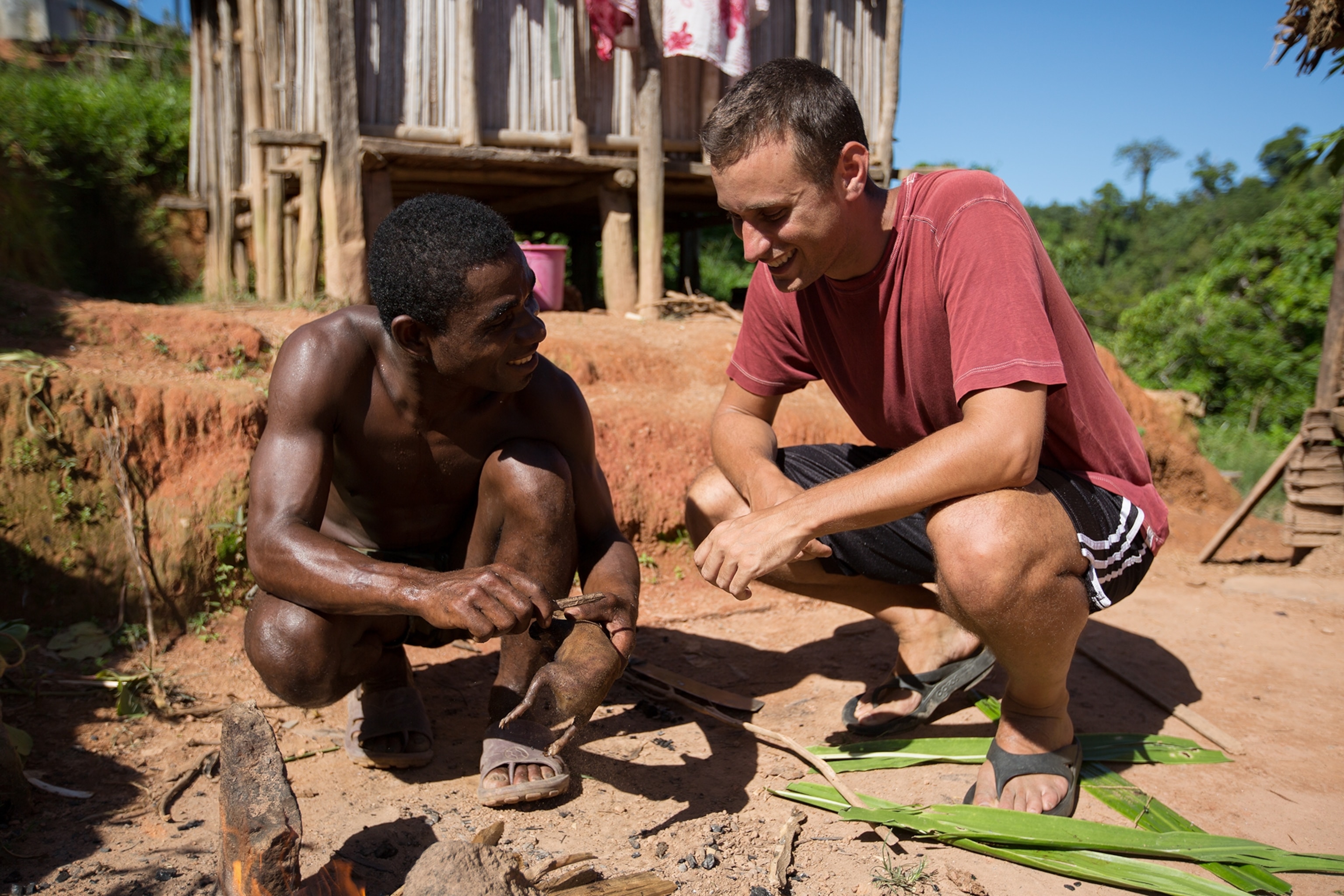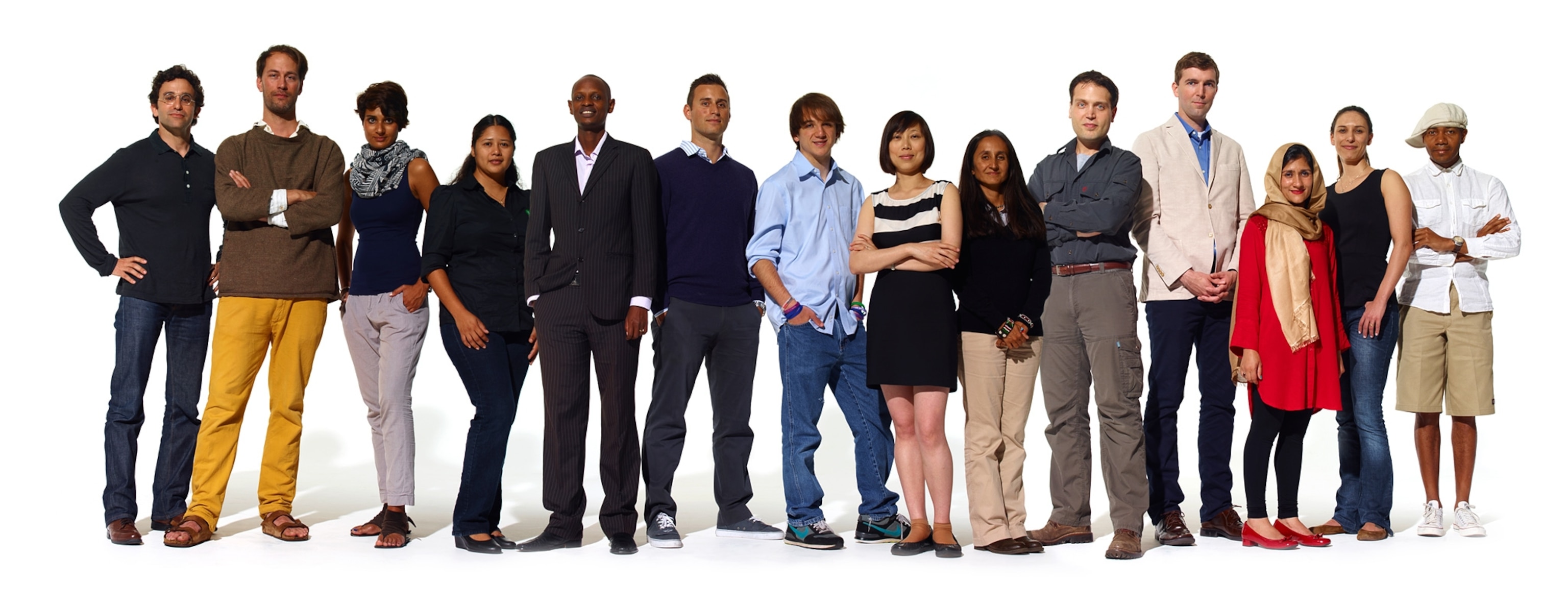Christopher Golden: Health of Planet, People Linked
Madagascar researcher finds surprising connections between the environment and humans.
What does an endangered lemur have to do with a malnourished child in Madagascar? How does deforestation in Indonesia affect a Singapore businessman's cardiopulmonary system? Why could a marine conservation area improve a woman's health oceans away?
Christopher Golden researches and quantifies the often surprising connections between environmental trends and human health. "My goal is to use empirical data and predictive models to quantify how problems like wildlife depletion or climate change affect the well-being of people, and then link those results to actionable policies."
Epidemiologists are medical detectives—investigating disease patterns in human populations. Using fieldwork, research, and data analysis, they identify what triggers disease, why it spreads, what can stop it, and whom it puts at risk. All around the world, public health policy and prevention efforts depend on these findings. Golden's special niche connects epidemiology with ecology—exploring how environmental trends affect our health, and how the right interventions can solve problems for both sick people and sick ecosystems.
"The health of our planet can have powerful effects on the health of people. Understanding that complex relationship has never been more critical," Golden says.
His research demonstrates how changes in the environment can have a tangible impact on human health—showing how choices such as whether to buy tuna or steak, when to clear trees to plant crops, and where to drop fishing nets could have surprising health consequences for everyone from Madagascar's bush hunters to New Yorkers sitting down to a five-star meal.
It all began when he was nine years old and wrote a school report about ring-tailed lemurs. "I became obsessed with the species and with going to Madagascar after browsing through the Encyclopedia of Animals and reading the 1988 National Geographic issue on the 'Wilds of Madagascar.'"
At age 16 his dream came true with a summer research project in Madagascar led by National Geographic Emerging Explorer Luke Dollar. Since then, he has spent several months each year embedded in the country, becoming fluent in Malagasy dialects, and exploring the complex relationship between ecology, human health, and conservation.

Web of Life
"My research evolved organically by living in remote forests with people who truly rely on natural resources," Golden says.
His first ever studies on hunting in Madagascar revealed a troubling web of interrelated problems. Hunters were depleting wildlife at an unsustainable rate. Yet bushmeat provided a crucial nutritional resource for local people. Protecting wildlife through conservation would also shrink human food supplies because most hunting in Madagascar is illegal. And while animals are an important food source, killing and eating wildlife puts people at greater risk of contracting infectious diseases that animals transmit.
"Hunters didn't set out to destroy their environment or drive species to extinction; they were trying to feed their families," Golden says. His data, proving that both people and wildlife were in peril, inspired efforts to replace bushmeat hunting with chicken husbandry. "This could be a strong win-win conservation solution for Madagascar since our findings show that people prefer the taste of chicken over any form of wildlife, and none of their many dietary taboos forbid consuming it."
In the past, Newcastle disease has decimated chicken flocks in Madagascar's northeastern region. "We're working to bring a live vaccine for the disease to this area based on research that indicates people are willing to pay more than it will cost to import and distribute it. Healthier, more productive chickens could prevent many forms of malnutrition since the meat delivers a critical concentration of micronutrients."
Locals also eagerly anticipate an ethno-medicine "recipe" book that Golden's team will soon distribute to dozens of villages. "Hospitals are distant and expensive, so indigenous plants are the primary defense against illness for the vast majority of these people," he says. "Our study identified about 250 plant species being used to treat more than 80 ailments. This book will preserve vital local knowledge through illustrations and instructions on how to find and use each plant."

Strength and Healing
Golden says, "Looking back, I know I was drawn here by a sense of adventure." Upon arriving in Madagascar, he found plenty of it. "It takes small planes, miles of muddy roads, 30 river crossings, and hours to days of hiking just to reach my field sites. But what's kept me here is the incredible environmental wisdom the Malagasy people possess about every aspect of their natural world. I've learned more from them than I did during my entire college and Ph.D. education."
Golden has also tried to bring this knowledge to Malagasy students and scientists. In 2004, he created a local research organization called MAHERY (Madagascar Health and Environmental Research), a word that locally means "strength." Through this organization, he has trained more than 20 Malagasy university students from various fields including anthropology, animal biology, sociology, veterinary medicine, and economics.
Golden's efforts are now expanding far beyond Madagascar's forests in his new role as director of the HEAL (Health and Ecosystems: Analysis of Linkages) program, a consortium of 25 institutions led by the Wildlife Conservation Society. Projects span the globe, but all harness data to better understand how environmental changes affect human health and how empirical findings can guide problem solving.
One HEAL project will take many of Golden's terrestrial techniques to the oceans. "We're helping quantify how global fishery collapse relates to rising worldwide malnutrition and other specific health outcomes. Our predictive models will link ocean acidification, pollution, warming, and coral bleaching to food insecurity. Conversely, we'll measure how protecting marine areas can increase productivity of fish and boost food supplies."
He adds, "Research can have tremendous influence on setting priorities, creating policies, and maximizing conservation efforts. It's such a powerful tool."
